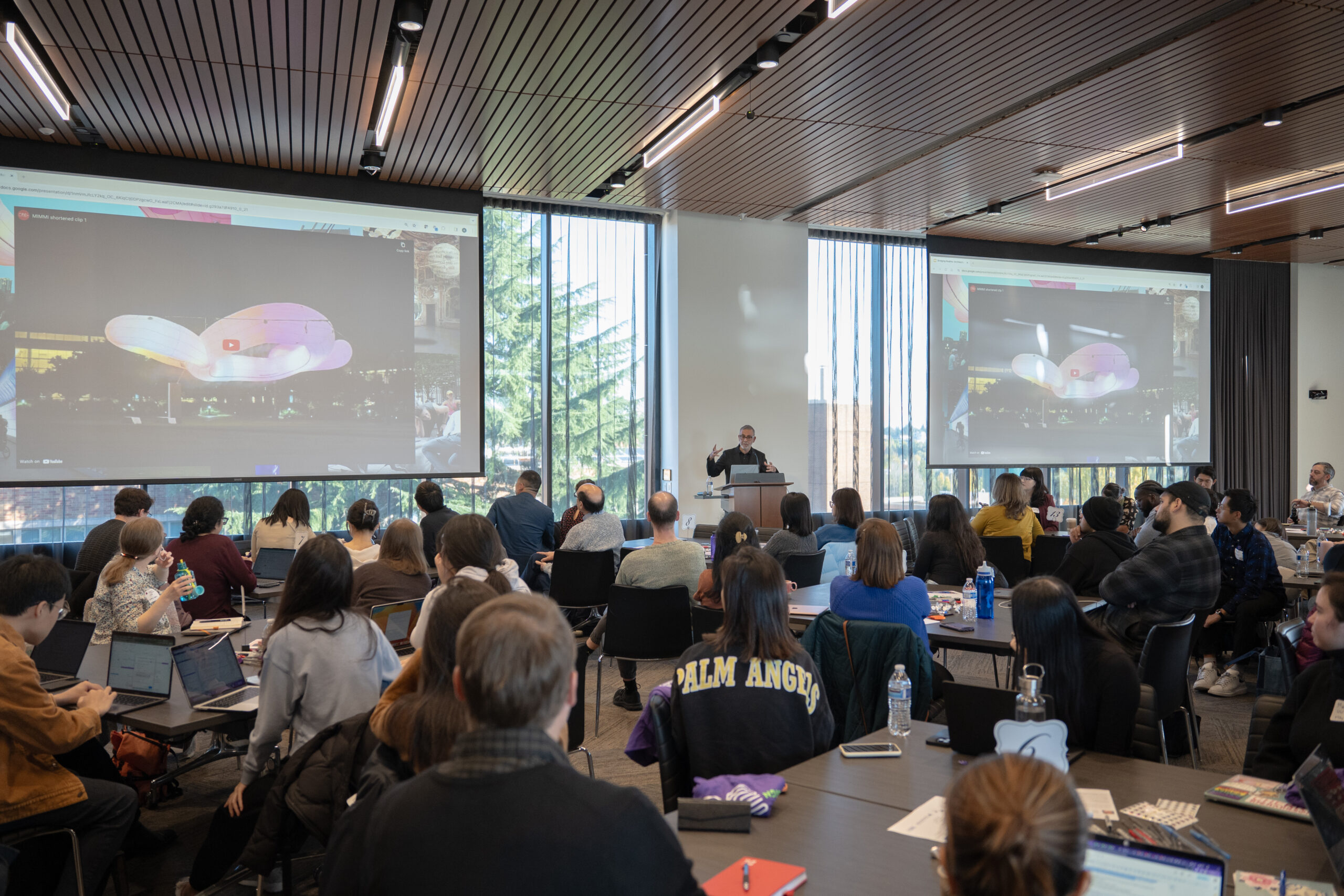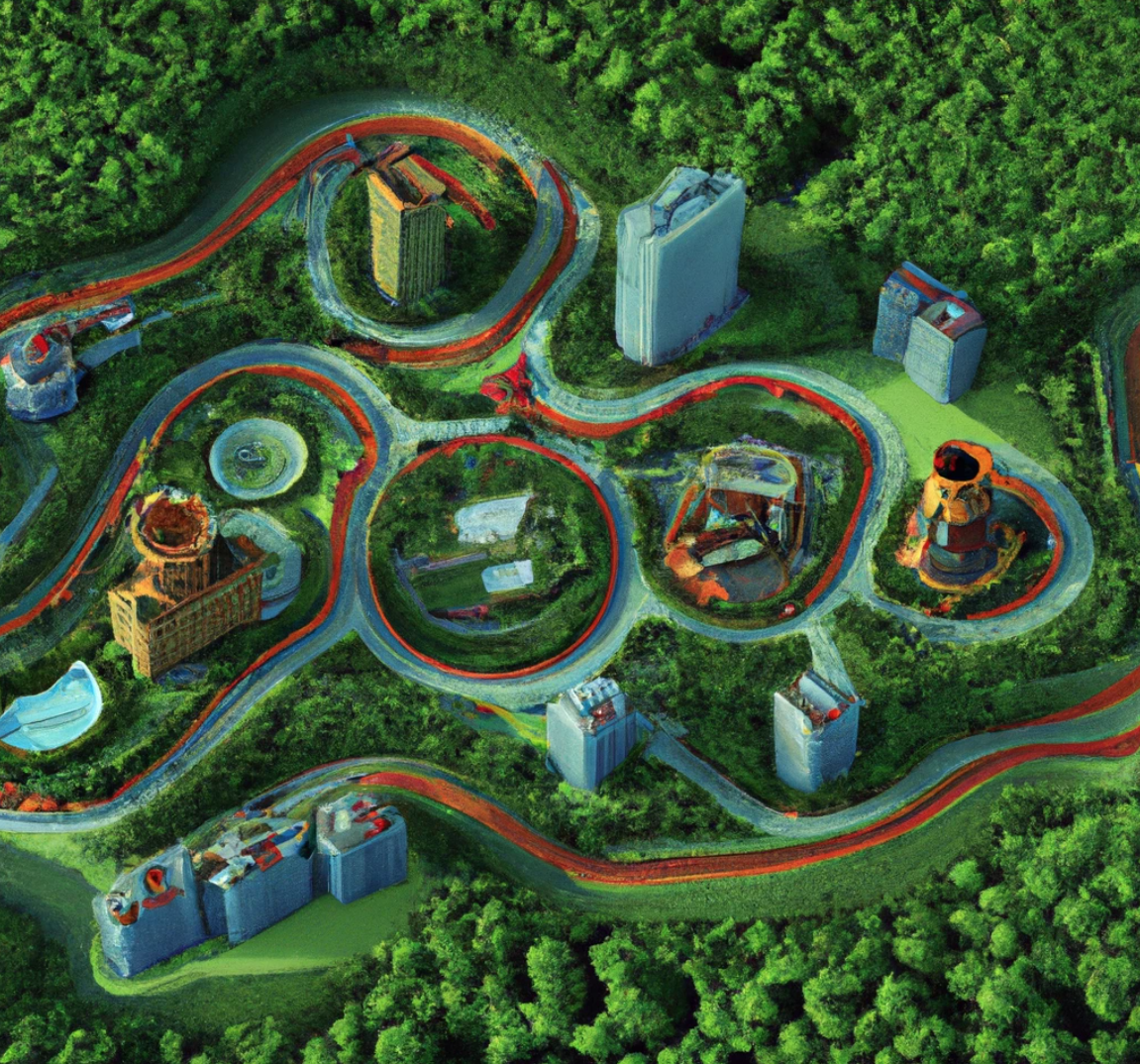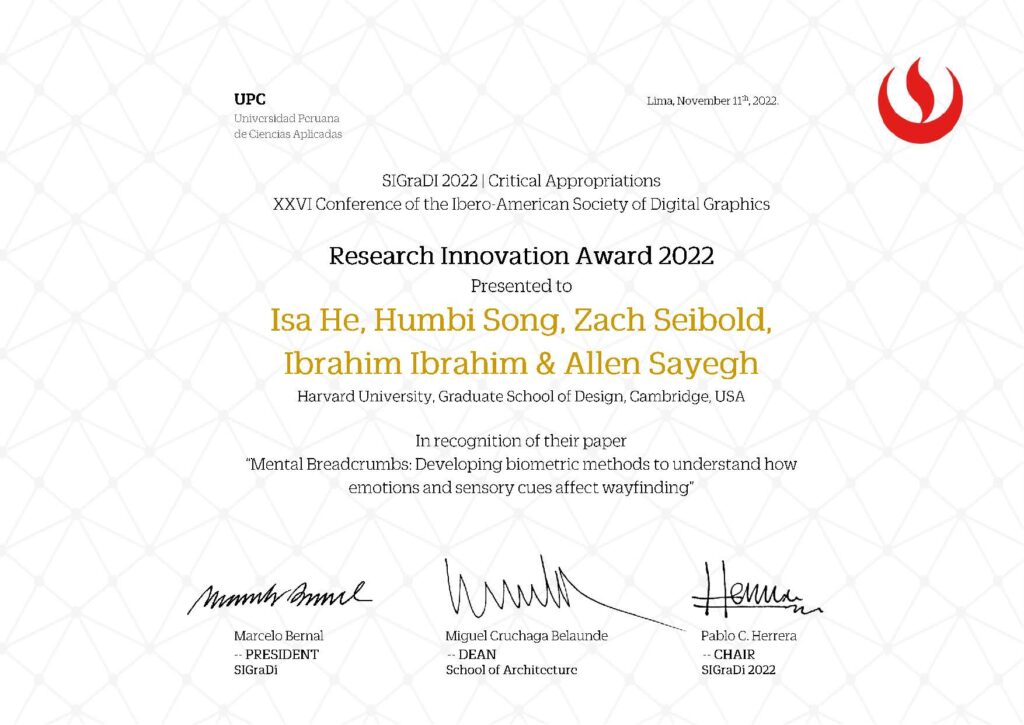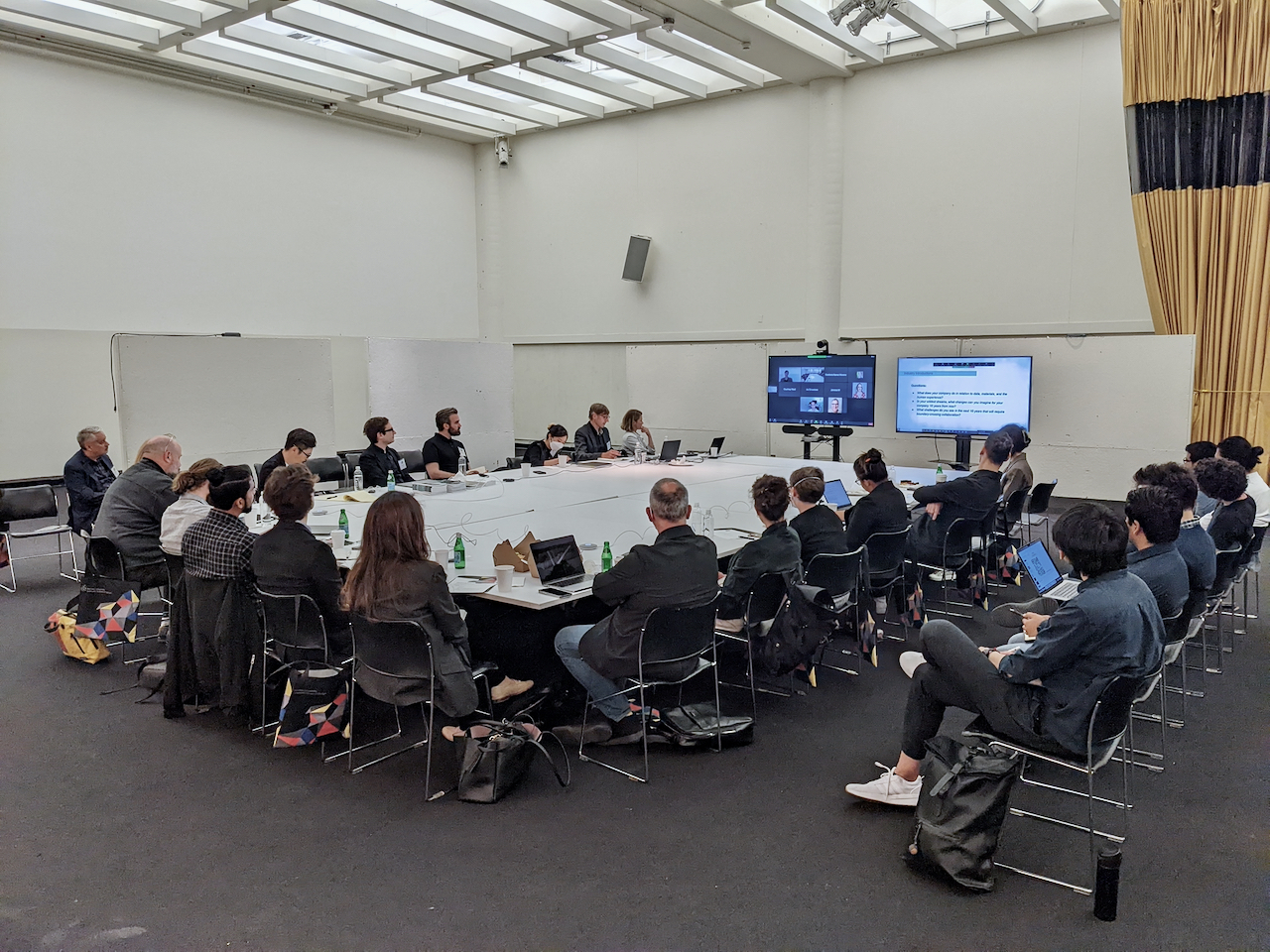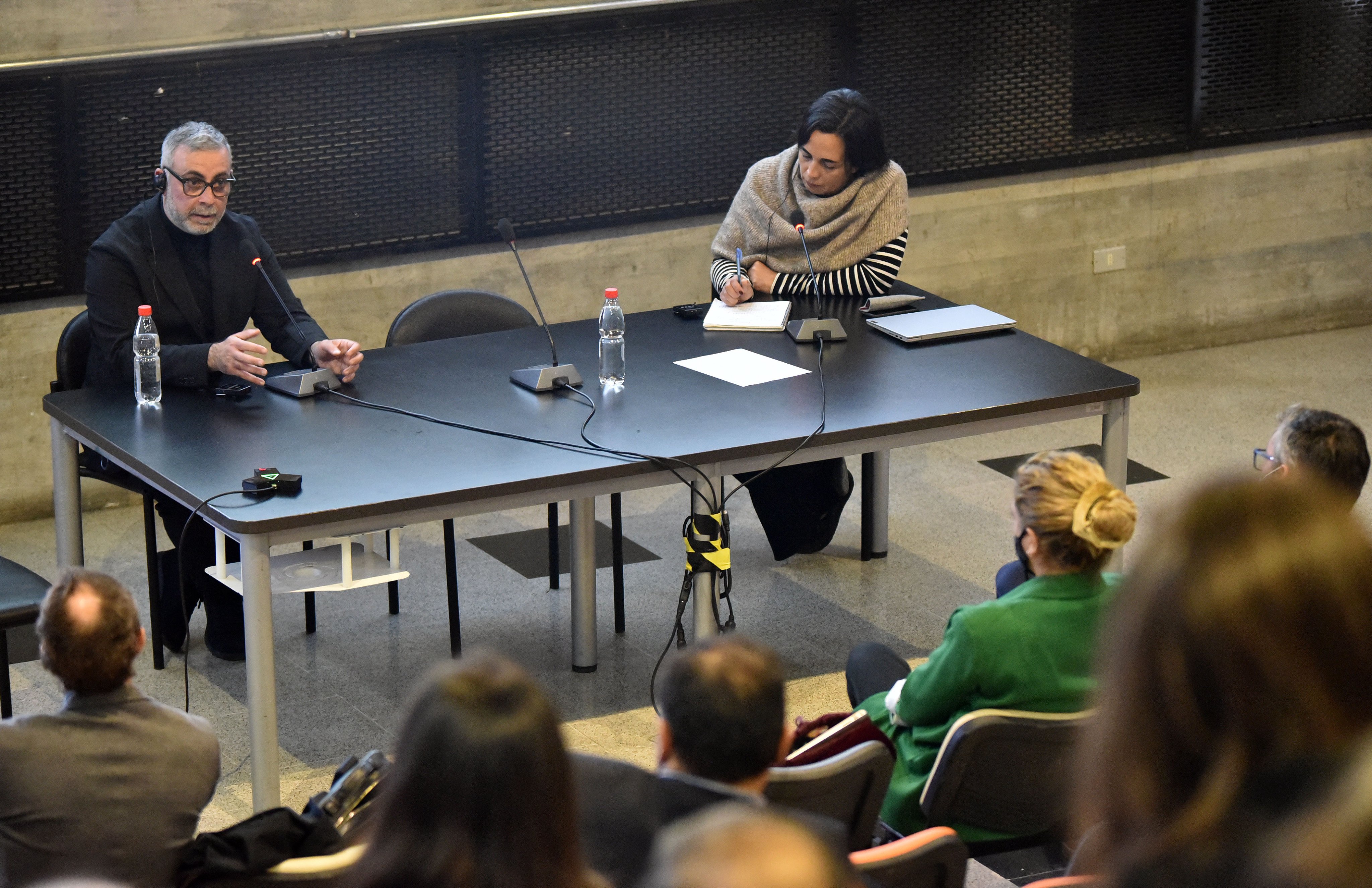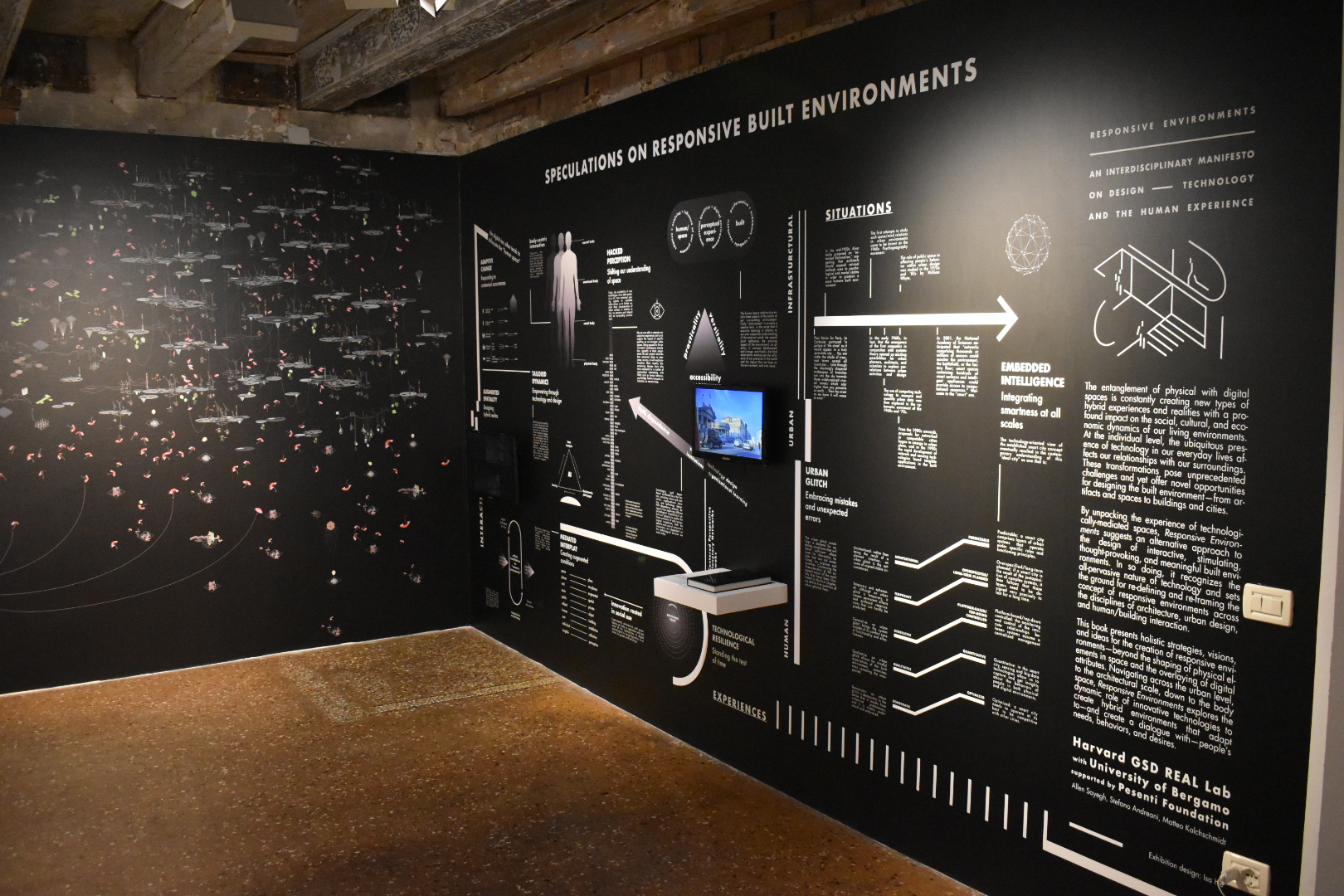Prof. Allen Sayegh gives Keynote at UW’s DUB Community Day!
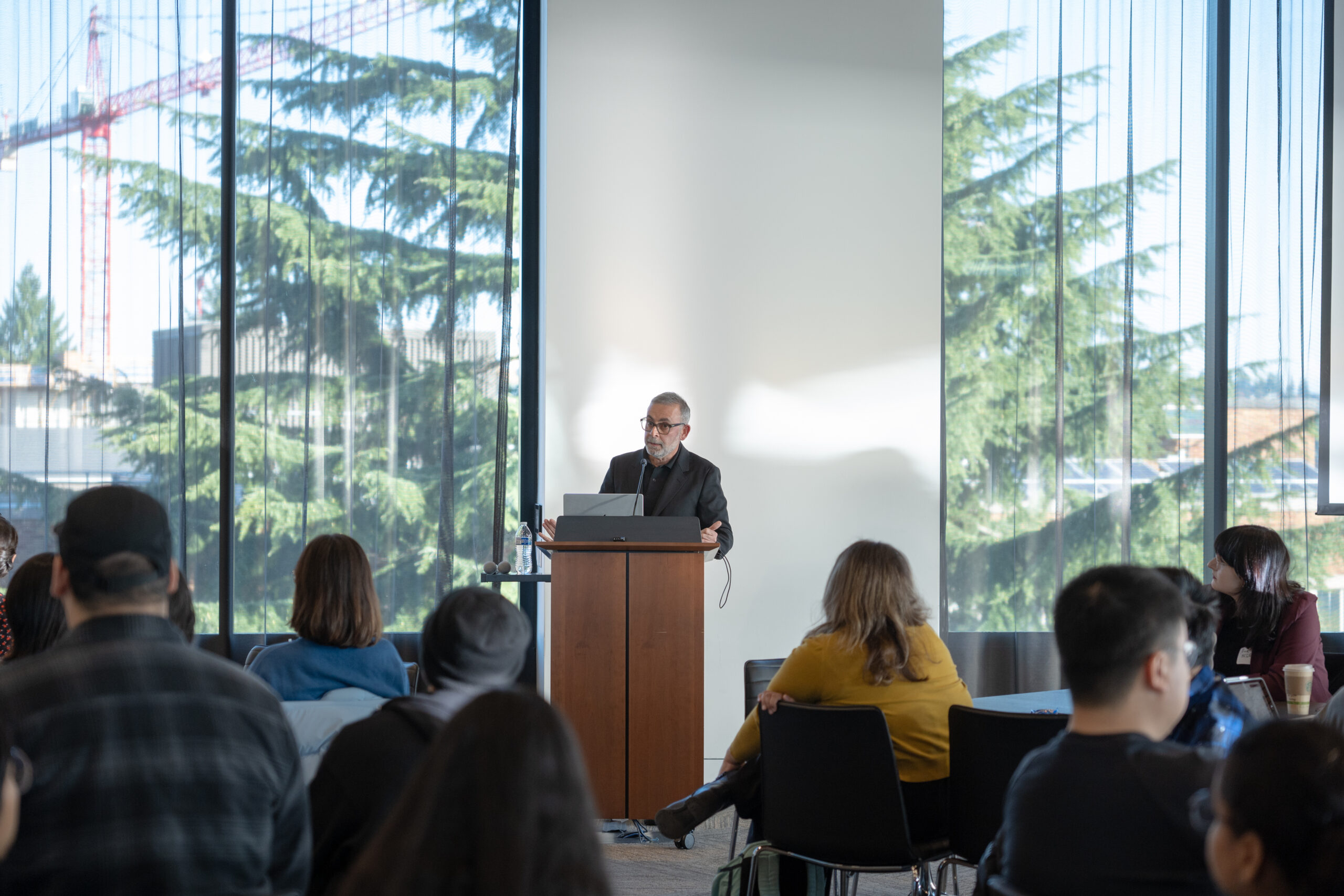
Great news! Our own Professor Allen Sayegh was the keynote speaker at the University of Washington’s DUB Community Day for 2023-24. The event was hosted by the DUB partners, including the University of Washington Information School, University of Washington Computer Science & Engineering, UW – School of Art + Art History + Design, and University of Washington Human Centered Design & Engineering.
His talk “Bridging Realms: Architecture and HCI,” explored the dynamic interplay between architecture and HCI, unveiling the transformative power at the convergence of the digital and physical worlds. The talk sparked discussions and gave everyone some food for thought about where architecture and digital tech might go in the future.
Big thanks to the University of Washington for hosting & Allen for the wonderful keynote!

